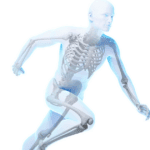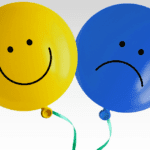
Breaking Down the Effects: Understanding How Drug Abuse Damages Your Musculoskeletal Health
September 7, 2023
Living with Bipolar Disorder: Effective Ways to Manage Symptoms and Improve Quality of Life
September 7, 2023Welcome to our blog post on empowering patients through skill development. In this quick guide, we will explore the transformative power of enhancing daily functioning for individuals facing health challenges. Whether you're a patient seeking greater independence or a caregiver looking to support your loved ones, this comprehensive resource is designed to equip you with effective strategies and tools. Discover how developing essential skills can unlock new possibilities, improve overall well-being, and empower individuals to take control of their lives. So let's dive in together and unlock the limitless potential that lies within each of us as we embark on this journey towards enhanced daily functioning.
Introduction to Mental Health and Coping Skills
Mental health is essential to overall health and well-being. It encompasses our emotional, psychological, and social well-being. It affects how we think, feel, and act. It also helps determine how we handle stress, relate to others, and make choices.
Coping skills are the tools that we use to manage our thoughts, feelings, and behaviors. They help us to deal with stressful situations in a healthy way. Everyone has their own unique coping skills toolbox. Some common coping skills include:
- Deep breathing
- Progressive muscle relaxation
- Visualization
- Mindfulness meditation
- Guided imagery
- Yoga
- Tai chi
What Challenges Are Patients Facing?
Patients with mental health conditions often face significant challenges in their daily lives. These can include difficulties managing symptoms, dealing with stigma and discrimination, maintaining employment, and navigating the mental health care system.
Patients may also struggle to cope with major life events such as the death of a loved one or a relationship break-up. Many will have experienced trauma in their lives, which can make it hard to trust people or feel safe in the world.
Teaching patients effective coping skills can help them to manage these challenges and improve their quality of life. Some helpful coping skills include problem-solving, relaxation techniques, assertiveness training, and self-care.
Types of Coping Skills for Patients
There are many different types of coping skills that can be helpful for patients dealing with mental health challenges. Some common coping skills include:
- Identifying and expressing emotions in a healthy way
- Developing a support system of friends or family members
- Practicing relaxation techniques such as deep breathing or meditation
- Engaging in regular physical activity to help reduce stress
- Keeping a journal to track thoughts and feelings
- Seeking professional help when needed
Teaching Effective Coping Skills
When it comes to teaching effective coping skills, there are many different approaches that can be taken. Some patients may respond well to cognitive-behavioral therapy, while others may find relief through more creative outlets like art or music therapy. It is important to tailor the approach to each individual patient in order to maximize the chances of success.
One of the most important things to keep in mind when teaching coping skills is that the goal is to help the patient develop a toolbox of techniques that they can draw on in times of need. This means that it is important to introduce a variety of different techniques and allow the patient to explore which ones work best for them.
One common technique that can be used for teaching coping skills is breathing exercises. These exercises can help to calm the nervous system and provide a sense of grounding during difficult times. Other relaxation techniques such as progressive muscle relaxation or guided imagery can also be helpful for some patients.
Cognitive-behavioral therapy (CBT) is another approach that can be used for teaching effective coping skills. CBT focuses on helping patients identify and change negative thought patterns that contribute to feelings of anxiety or depression. This type of therapy has been shown to be very effective in treating mental health conditions like anxiety and depression.
Art therapy and music therapy are two other approaches that can be used for teaching coping skills. These therapies allow patients to express themselves creatively and can often provide a sense of release or catharsis.
Ideas for Practice and Implementation
Mental health patients face unique challenges that can be difficult to cope with. However, there are a number of effective coping skills that can be taught to help them deal with these challenges. Here are some ideas for practice and implementation:
- Teach patients how to identify their triggers. This can help them avoid situations that may lead to a relapse or exacerbation of symptoms.
- Help patients develop a support system of family, friends, or professionals who can provide emotional and practical support.
- Teach patients stress-management techniques such as relaxation methods, problem-solving skills, and positive thinking.
- Encourage patients to participate in activities that they enjoy and make them feel good, such as exercise, hobbies, or social activities.
- Help patients develop a healthy lifestyle by teaching them about nutrition, sleep, and exercise habits that promote mental well-being.
Benefits of Learning Coping Skills
There are many benefits to learning coping skills. One of the most important benefits is that it can help you to better manage your mental health condition. When you have effective coping skills, you will be able to better deal with stressors in your life and you will be less likely to experience a relapse.
In addition, learning coping skills can also help you to improve your relationships. When you are able to cope with stress in a healthy way, you will be less likely to take your frustrations out on those around you. This can lead to improved communication and stronger relationships.
Learning coping skills can also help you to boost your self-esteem. When you know how to effectively deal with challenges, you will feel more confident in yourself and your ability to handle whatever life throws your way. This increased self-confidence can lead to improved overall mental health and well-being.
Mental health patients face a variety of challenges in their daily lives, and it is important for them to have the tools they need to cope with these difficulties. Teaching mental health patients effective coping skills can help them better manage their emotions and take steps towards improving their overall mental well-being. Through education, therapy, and practice, individuals suffering from mental illness can learn how to effectively deal with life’s ups and downs while developing strategies that will benefit them both now and in the long run.
If you or a loved one is struggling with mental health disorders and/or addiction, give us a call today. 877-595-3330






